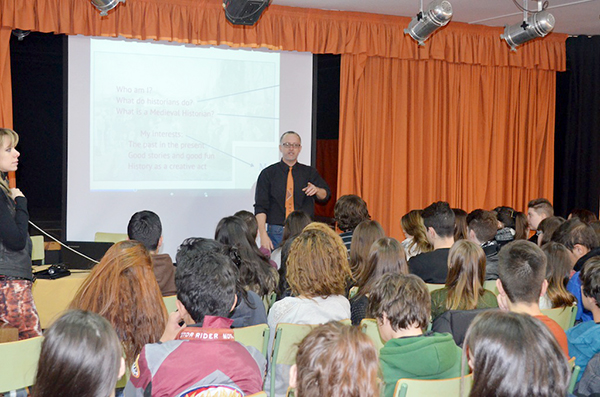

SUNY New Paltz was named one of the top producers of Fulbright scholars for master’s institutions in 2013-2014 by the U.S. Department of State, with a total of 13 Fulbright scholars from the college from 1998 to the present.
President Donald Christian said that Fulbrights are “really competitive opportunities” for members of faculty to experience their work and study in different parts of the world.
According to the Department of State’s Bureau of Educational and Cultural Affairs website, the Fulbright program is a “flagship international educational exchange program sponsored by the U.S. government and is designed to increase mutual understanding between the people of the United States and the people of other countries.”
The Program was given a congressional appropriation of $237.6 million in the 2012 fiscal year with foreign commissions and foundations contributing approximately $89.2 million in the 2011 fiscal year.
“Not everyone who applies for a Fulbright gets one,” Christian said. “So, it’s a reflection of the caliber of faculty that students are interacting with in the classroom.”
According to a recent press release the college has two professors who received the award this year –— Associate Professor of History Michael Vargas and Associate Professor of Geography Salvatore Engel-Dimauro.
“Having New Paltz be recognized as a major reception of Fulbright scholars is an acknowledgement of the great faculty that we have,” Christian said.
According to the press release, Vargas will spend the 2013-2014 academic year in Barcelona. While abroad he will use the grant to “support his continued study of the Crown of Aragon in the late Middle Ages, including the exploration of problems of institutional imbalance, leadership hubris and social anxieties in contemporary Spain and the United States.”
Engel-DiMauro will spend the year in Rome. at the University of Rome La Sapienza. His project will combine “teaching and researching environmental issues in cities.” He will also lecture at graduate courses, seminars and workshops at the University and research “the factors fostering trace element movement from urban garden soils to crops.”
President Christian said the professor’s time in the program greatly benefits and diversifies the classroom experiences of students on campus.
“These faculty go off and they work on these Fulbright programs and come back and now have different experiences and capacities to bring into the classroom with students and to expand their future research and scholarly activities: both the reflection of quality and enhancement of what faculty can bring into the classroom afterwards,” Christian said.
